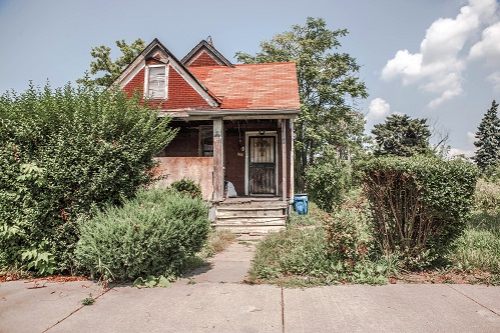Why should you get renters insurance?
You should get renters insurance to protect your personal belongings from damage or theft, provide liability coverage if you are responsible for injuries or damage to others and provide additional living expenses if your apartment becomes uninhabitable after a covered loss. It’s a low-cost way to protect yourself from the unexpected.
What does renters insurance cover?
There are typically three areas that renters insurance covers.
Personal property. Renters insurance covers all of your personal property, from your sheets to your TV. Whether there is a fire or a break-in, it will pay to replace your things. There are special limits on high value items, like jewelry or art.
Liability coverage. If you're responsible for damage to someone else's property, or an injury, your renters insurance will cover the damages. Liability starts at $100,000, but it costs very little to add more.
Loss of use (additional living expenses). If you can't live in your apartment due to damage and you need to find a hotel in the meantime, renters insurance will usually pay for those additional living expenses.
How much does renters insurance cost?
According to our analysis, renters insurance costs, on average, $347 per year or $29 per month for $40,000 personal property coverage, $100,000 liability coverage and a $1,000 deductible.
How much you’ll pay for your renter's policy depends on where you live, what types of coverage limits you need, your credit score and more. In general, however, renters insurance is very affordable.
Renters insurance calculator
Average renters insurance rates in TexasMost & least expensive ZIP codes for renters insurance in Texas
| ZIP code | City | Highest rate |
|---|---|---|
| 78368 | Mathis | $264 |
| 77014 | Houston | $264 |
| 77444 | Guy | $263 |
| 77374 | Thicket | $262 |
| ZIP code | City | Lowest rate |
|---|---|---|
| 75070 | McKinney | $183 |
| 78132 | New Braunfels | $183 |
| 75072 | McKinney | $183 |
| 75013 | Allen | $183 |
Renters insurance discounts
As cheap as renters insurance is, you may be able to knock the price down a bit. Some typical renters insurance discounts you'll find include:
Bundling with auto (multi-policy). If you have car insurance and get your renters insurance with the same company, you may save a bit. Progressive, for instance, shaves off 3% when you bundle policies. You'll want to shop around, though, in case you can save more by going with an insurer that isn't the one you already have.
Senior discount. You may qualify if you’re over a certain age. For instance, Allstate offers a "55 and retired discount," where you can get up to 25% off your premium if you are retired and not looking for a full-time job.
Burglar alarm discount. Check with your insurance company, but if you have a burglar alarm, or any sort of special device to keep threats out, from smoke detectors to deadbolts, you might be able to get a discount. Nationwide says, "if your home has smoke detectors, fire alarms, burglar alarms or other qualifying devices, you may be able to lower your premium."
If your apartment has a robust security system, that's probably going to be factored into the cost of your renters insurance premium already. Still, it's worth asking about potential discounts.
What is not covered by renters insurance?
Renters insurance does have exclusions, and only covers you up to the policy limit.
- Bugs and rodents. If your apartment is invaded by bedbugs or rats, generally, insurers see that as the landlord's fault. Insurance tends to cover risks, and the risk that you have a landlord who isn't on the ball is a chance many insurers aren't willing to take.
- Flooding and earthquakes. You may be able to get a separate flood or earthquake insurance policy if you want that coverage..
- Your roommate's property. Unless you're sharing the cost of renters insurance and their name is on the policy, your policy would only cover what you own.
- Any excluded peril. Make sure to read the list of covered perils on your policy. If it's not listed, it's not covered.
Is renters insurance worth it? The bottom line
Renters insurance is not a requirement unless specified by your lease. It offers valuable protection for your personal belongings, liability and additional living expenses in the event of unforeseen incidents. For an average cost of $347 per year or $29 per month, renters insurance provides a cost-effective safety net against loss or damage to your possessions and liability claims.
However, renters policies do not cover pests, flooding or earthquakes, which might necessitate additional insurance. There are many renters insurance discounts that may reduce your premium, such as bundling with auto insurance or having security devices in your home.




